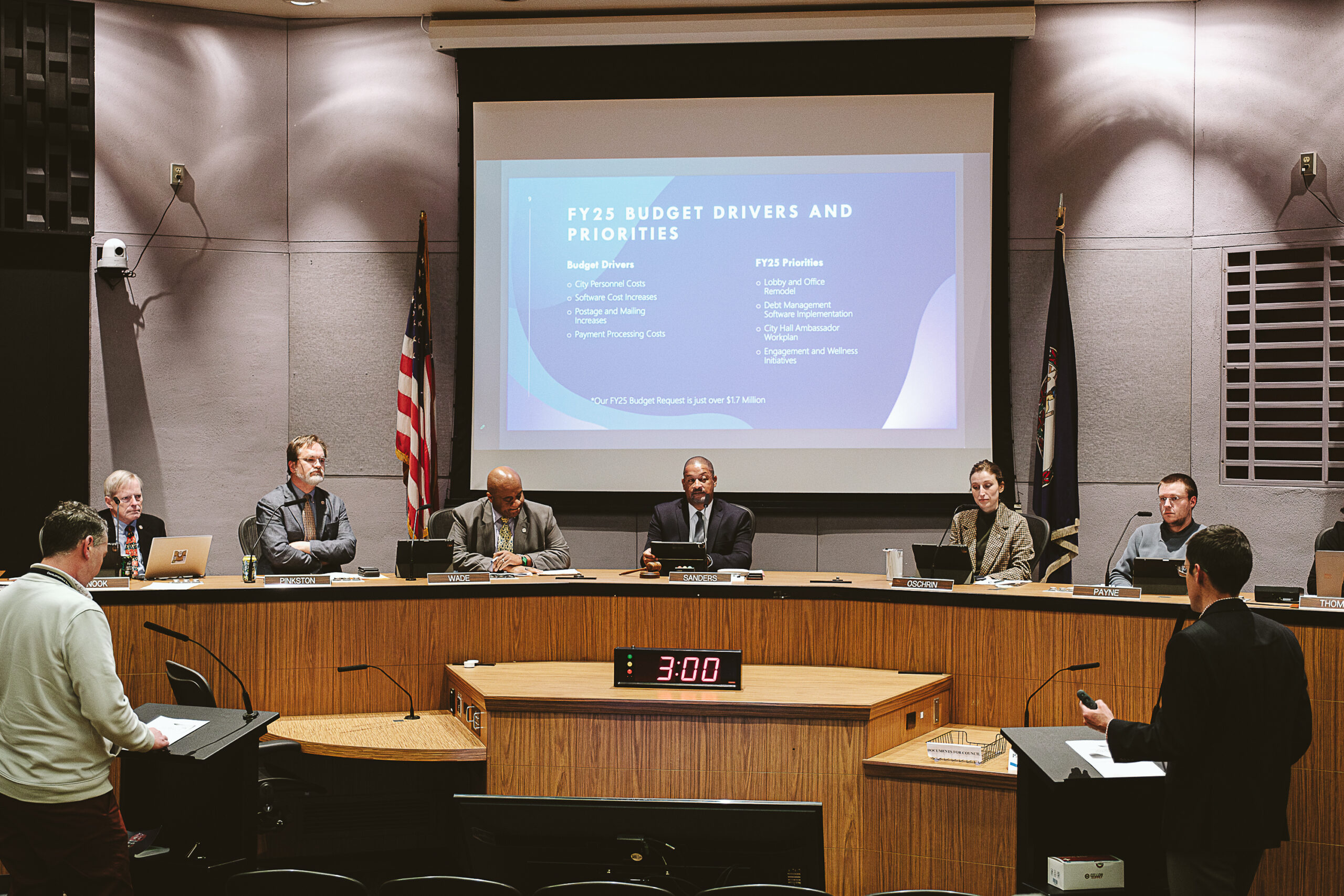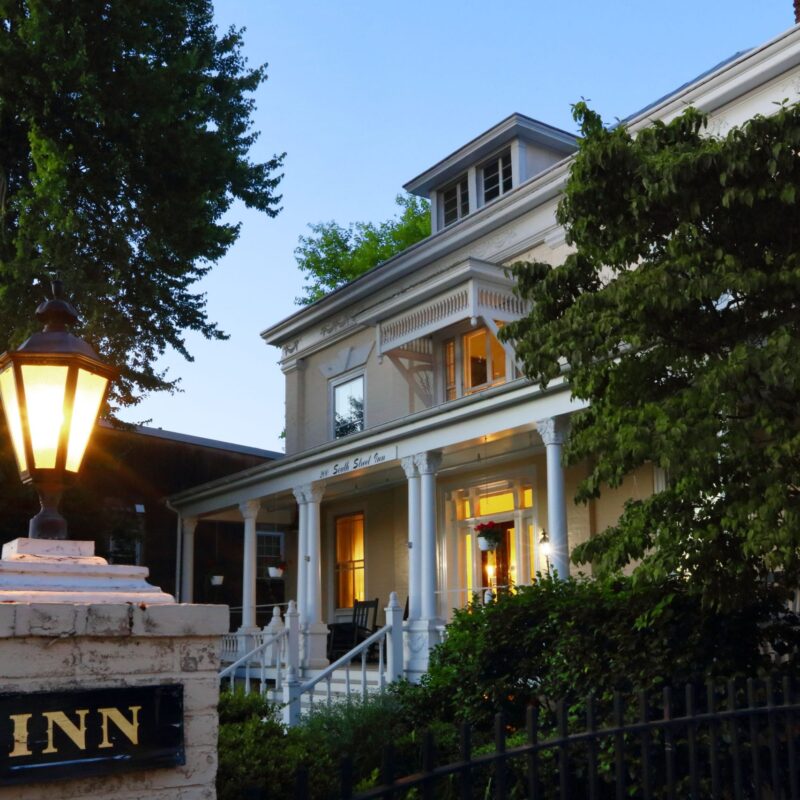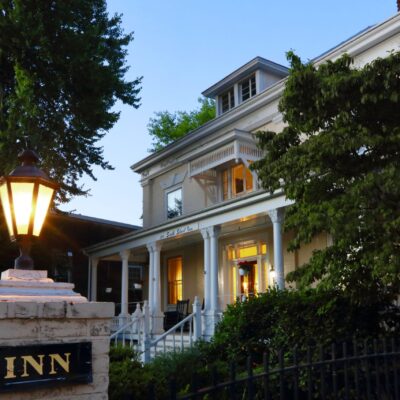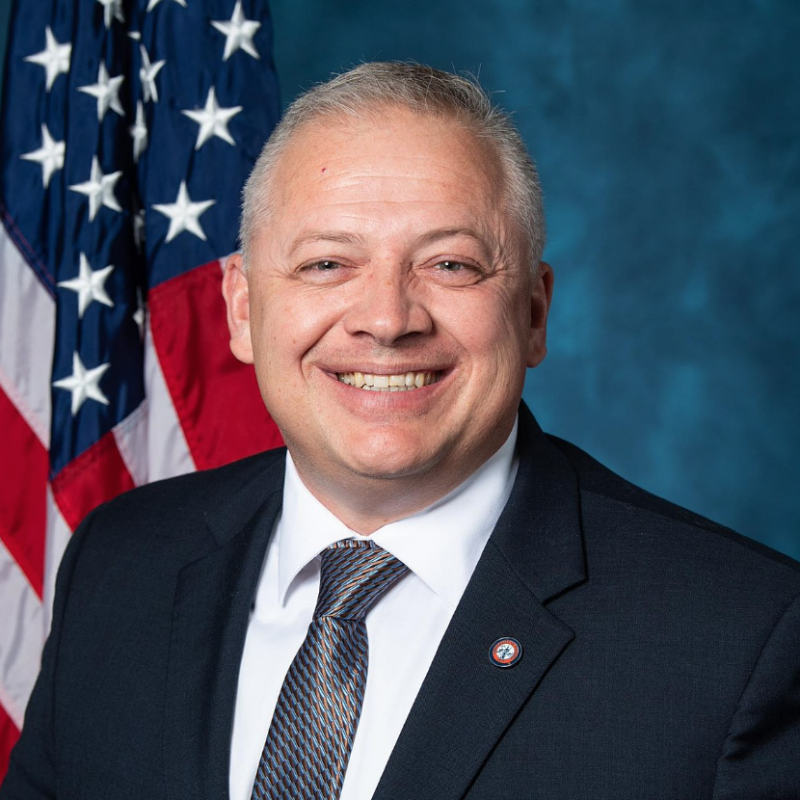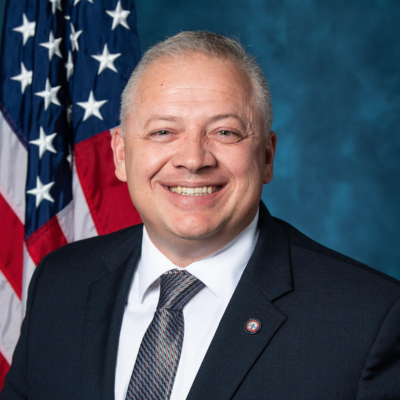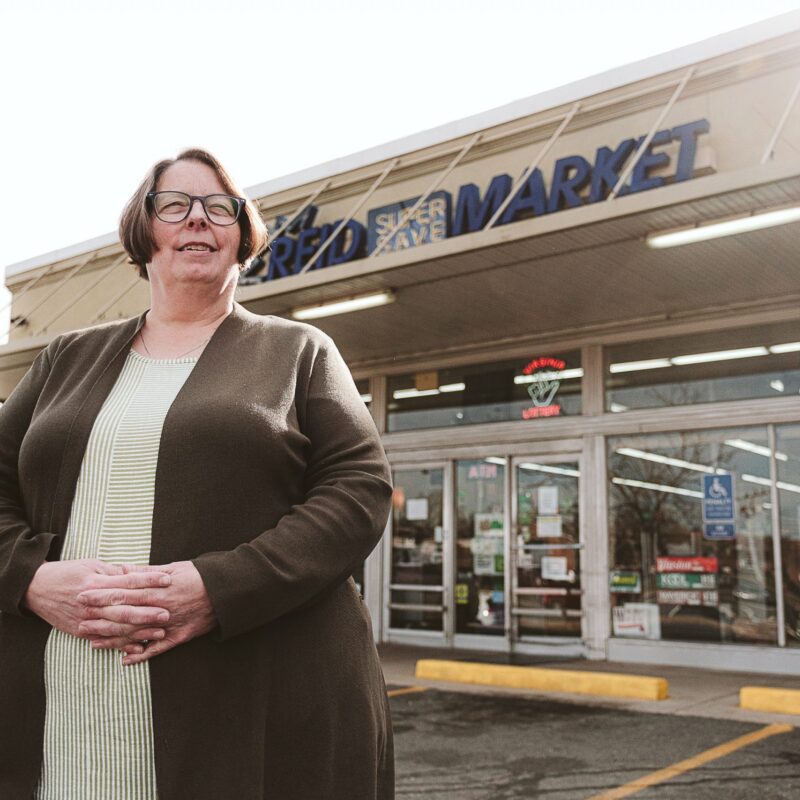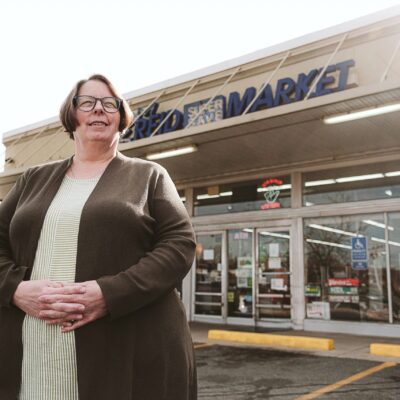In a special, single-item meeting on April 14, Charlottesville City Council unanimously adopted a $265,248,446 budget for FY26. While councilors voted on the budget less than 30 minutes into the session, the final budget is the culmination of months of work and conversations between city leadership and local organizers.
The sky-high total comes in at almost $1 million above the original budget recommendation from City Manager Sam Sanders and is a 5.28 percent increase over the city’s FY25 budget. The higher total was prompted by increased revenue estimates, with the final budget amendment including a $774,264 hike to expected revenues.
Both the personal property and vehicle daily rental taxes are predicted to bring in higher than expected revenues, but the bulk of the adjustment comes from the anticipated additional $700,000 in business and professional licenses. A plastic bag tax projection was decreased by $15,000.
Despite the adjustments surrounding tax revenues, no rate hikes were included in the FY26 budget, with increases instead coming from higher assessment values. Confusion surrounding the tax rates partially resulted from errors in public notice advertising by the city, which Sanders addressed at the meeting.
“Buck stops here,” said Sanders, noting that the city was working to rectify the errors (the public notice for the tax rate meeting was first listed in the incorrect section of The Daily Progress, then was not posted in City Hall within the legally required time frame) when the city attorney appeared in court. “Mistakes happen, we apologize for the mistakes. We made sure [there are] checks and balances going forward, and we’ll do better.”
The public tax rate hearing has been rescheduled for April 21.
Sanders also addressed the decision to hold off on spending surplus funds, reiterating the importance of flexibility under the Trump administration.
“I continue to track what’s happening,” said Sanders, who shared that meetings are ongoing both within city government and with external parties. “There’s a number of nonprofit organizations who have presented losses that they have incurred, as things have not materialized, and/or grants that they had with the federal government were being terminated immediately.”
“The city organization itself has not incurred a loss, but we still continue to monitor,” he said. “It’s not a matter of if, it’s actually a matter of when.”
Sanders plans to bring the first proposals for the roughly $24 million in surplus funds before council in the next two regular meetings. Specific areas of concern noted by city leadership include potential cuts to SNAP and Medicaid.
The other significant amendment to the budget was the reallocation of $4,200 from the Vibrant Community fund to the Tonsler League, which was previously slated for The Fralin Museum of Art at the University of Virginia. The basketball organization ran into a sudden funding shortfall following a line item veto by Gov. Glenn Youngkin, which cut $30,000 in state funding to the group.
Major drivers of the budget remained unchanged at the adoption meeting, with significant funding allocated for education, affordable housing, transportation, and organizational excellence. While the city largely met funding requests for Charlottesville City Schools, affordable housing initiatives, and internal expenditures from collective bargaining, transportation activists came away from the budget cycle with less money for bus driver positions than they hoped.
Mayor Juandiego Wade and Vice Mayor Brian Pinkston spoke directly to Interfaith Movement Promoting Action by Congregations Together members present for the budget vote. At the Nehemiah Action on April 8, Wade and Pinkston both expressed their support for funding additional bus driver positions requested by IMPACT.
“I want people to know that this is not the end, we heard you last week. We’re working on it, and what you’re hearing now is the sort of public outworking of the conversations that need to happen,” said Pinkston. “We realize that commitments were made.”
City council has committed to a meeting with IMPACT this July to discuss improvements to Charlottesville Area Transit and driver hiring and retention.
“We heard council members give strong endorsements to our goals, indicating that the people power of the 27 congregations in IMPACT is making a difference,” said Reverend Alex Joyner, IMPACT co-president and pastor at Charlottesville First United Methodist Church, in a statement to C-VILLE after the vote. “We look forward to continuing our work.”
On the topic of transportation, Councilor Natalie Oschrin celebrated the inclusion of pedestrian and bike priorities in the FY26 budget.
“I just want to thank you for incorporating the sidewalk money,” she told Sanders. “We acknowledge that transit and transportation is not just cars and buses, it’s people, and all of that. Maintaining our multimodal improvements is something that will significantly help people across the city.”
For information on the Albemarle County budget, see our story Albemarle Supervisors agree to put $5.2 million toward affordable housing next year.
Though it took councilors less than 30 minutes to adopt the FY26 budget on April 14, the final number has been a topic of conversation in council meetings, including this one on January 2, for months. Photo: Eze Amos.
